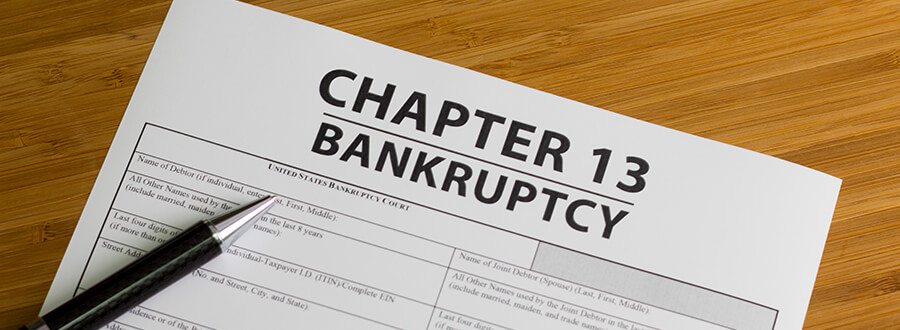Key Points
- Restrictions in the bankruptcy laws limit the debts that qualify for discharge in Chapter 7 bankruptcy.
- While you must repay a portion of your debt to creditors under a Chapter 13 Bankruptcy, this type of bankruptcy allows you to discharge more types of debt than a Chapter 7 Bankruptcy.

Americans currently face a dual challenge; battling a global health crisis which is simultaneously causing a severe economic crisis. The recession of 2020 is very different than previous recessions. Forced business closures led to mass layoffs. However, the quick government response provided much needed temporary relief in the form of higher unemployment insurance payments, moratoriums on evictions and foreclosures, and easy access to payment relief on existing debts such a credit card and personal loans.
As the Coronavirus drags on, jobs have not returned as fast as hoped. Now many relief programs have ended, leaving consumers struggling to keep up with payments when income has not recovered.
Having high levels of debt during an economic crisis can be the final straw that forces many into bankruptcy as the last option to resolve their debts.
Before you decide to file for bankruptcy, understand that bankruptcy takes different forms, and certain debts only qualify for discharge through a Chapter 13 bankruptcy, and not through Chapter 7.
7 Kinds of Debt Dischargeable in Chapter 13 Bankruptcy but Not Chapter 7
- Marital debts that are unrelated to support from a divorce or settlement agreement. The courts never discharge support-related debts such as child support or alimony in either a Chapter 7 or 13. However, debts that remain because of a settlement can qualify for a discharge in a Chapter 13 bankruptcy petition.
- Government fines and penalties acquired for reasons unrelated to a criminal offense. Penalties and restitution due to unlawful activity do not ever qualify for a discharge. However, those not related to crimes could be eligible discharge under Chapter 13.
- Debts you have incurred to settle a non-dischargeable tax debt. Bankruptcy does not discharge tax debts, but you can qualify for a discharge in Chapter 13 if you pay a tax debt with another form of qualified credit. For example, if you pay a tax debt using a credit card, you can discharge the credit card debt through a Chapter 13 bankruptcy.
- Accumulated association fees such as homeowners, condominiums, or cooperative fees, accrued after the date of the bankruptcy filing.
- Property damage debts sustained, even if the obligations were due to willful or malicious behavior.
- Retirement loans. The IRS has strict rules regarding access to retirement accounts. In most cases, creditors cannot gain access to these funds, and account owners must pay a penalty for tapping into the funds before reaching age 59 ½. Loans against your 401k are one of the few exceptions. These loans only qualify for a discharge in a Chapter 13 petition.
- Debts disqualified from a previous bankruptcy filing.
Converting Your Bankruptcy Petition from Chapter 7 to Chapter 13
In most cases, you can convert a bankruptcy petition from a Chapter 7 to a Chapter 13. The top reasons to do so might be the failure to qualify for Chapter 7, or you find it is more advantageous based on the types of debts you carry.
Before you consider filing for Bankruptcy under Chapter 13, understand that you will be required to pay back a potion of your debts to creditors under court ordered supervision, pay for required financial counseling courses required by the court, pay attorney and court fees and have a notation of bankruptcy on your credit report for 7-10 years, depending on what type of bankruptcy you qualify for. Furthermore, you may be asked if you have EVER filed for bankruptcy when applying for a lease for a home or apartment, on a job application, or on applications for new utility services. Answering yes may result in you being denied or paying higher fees or rates if accepted.
Given all the negative aspects of Bankruptcy, you may want to consider a debt settlement program instead. Depending on your debt amount and type, it may be possible to eliminate your debts faster and at a lower cost through debt settlement, which does not require court oversight or carry the negative impacts to your credit report for 7-10 years. Consulting with an attorney who specializes in both bankruptcy and debt settlement can help you decide which route is most beneficial under your specific circumstances.
